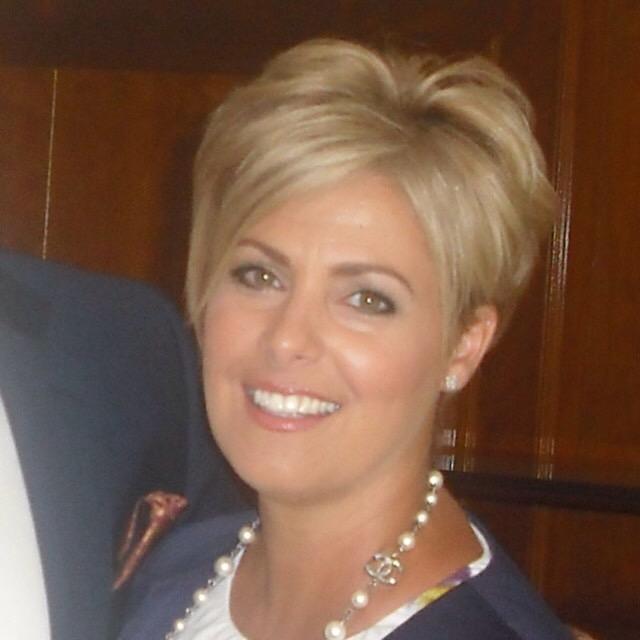Amanda Wildman, Director, Emotionally-i-Fit conducts monthly interviews on the theme of Emotionally Intelligent Leaders. First up is Mel Forbes, CEO Guidant Group
Emotional Intelligence is a combination of attitudes and behaviours that distinguish outstanding performance from average performance. It provides a framework for understanding how you manage yourself to be personally and interpersonally effective. Your emotions are influenced by your attitudes. In particular, your attitude towards yourself and your attitude towards other people. There are 16 dimensions relating to Emotional Intelligence that great leaders will display. In these interviews, we are going to explore how successful leaders demonstrate these EI behaviours in their work.
Mel Forbes has worked in the recruitment industry for more than 20 years. A personable and strategic leader, she has pioneered managed service, RPO and consulting partnerships with numerous market-leading organisations, across a range of sectors and countries.
She has also inspired and led companies to optimal performance and the achievement of their objectives. All of Mel’s knowledge and experience helps Guidant Group create and deliver a best-in-class proposition for the global marketplace. Mel is renowned for her ability to develop relationships and her focus has always been on engaging and developing the best talent. Amanda explores how she has successfully achieved this, as well as how she manages her work-life balance – she would seem to have the perfect blend.
How would you describe your leadership style?
I don’t believe that I’m ‘textbook’ in terms of my leadership style… I am very open, honest, extremely authentic, and consistent in my approach, I allow people to feel safe.
How do you make people feel safe?
I think to show you are open and honest you will also have to be true to yourself... there will be times when you make mistakes. This enables people to feel safe as they look at me as a fellow human being, rather than as a leader or their CEO. I am down to earth and again that makes people feel comfortable. I just believe that when people feel comfortable and safe then you can really drive performance because the groundwork is there.
Self-regard or self-esteem is a prerequisite for effective leadership. How do you maintain your sense of self even in the most volatile, challenging situations?
I think that comes back to authenticity. It is human to doubt yourself regularly. However if I am true to myself (and for me it always goes back to doing what’s right, rather than what’s easy) then I think being able to overcome those challenging situations becomes much easier as you know who you are and you know what you are about. You know what is possible and what isn’t.
So your belief system is based on doing ‘what’s right’ - not ‘what’s easy’?
I think it is that continual self-checking. To put it in a business context, if Guidant Group are looking at achieving certain goals, for example, around disability, we need to ensure that we as a company are already doing the advice that we are giving our clients. We are undertaking a huge project to become disability confident as an employer and to encourage our suppliers and clients to do the same. I wouldn’t feel comfortable advising our clients/suppliers on this if we were not delivering it within Guidant. We go right back into the business and look at all the touch points around it. This gives you an example of how I like to do what’s right, rather than what’s easy.
Has self-doubt or insecurity arisen during your career? If so, what did you do to maintain and cultivate your self-regard or self-esteem?
I ask for feedback. I rely on the people who work with me and for me, for reassurance – they prop me up. Sometimes it’s blatantly testing the theory of something and sometimes it is much more subtle. I will seek feedback from people I admire and trust. It might also be someone externally; or my husband.
So you have a strong network of external and internal support that provides you with a great perspective and helps build your self-regard. Being able to develop relationships with others in this way is a key dimension of Emotional Intelligence. How do you cultivate a positive attitude towards people regardless of their performance or behaviour?
I always ask people to ask themselves “what are you like to work with and for?” I try to create a fun and engaged environment. I want to work with people who have great knowledge but who are fun to be around. I choose individuals who give off positive energy. I have often been asked how I keep positive myself and it is very easy – I avoid negativity. If I confront a negative individual in the business, I am honest with them about how their negativity impacts the business, their relationships with me and others, and themselves.
What do you do to inspire high performance in others?
I think if people are happy, they will perform better. I have gone out of my way to ensure people are happy. I will pick people out – I will be in a meeting and if I spot someone who is unhappy I will hone in on that person. They will get my attention.
Self-awareness is an important dimension of emotional intelligence. This goes beyond self-knowledge - it is the awareness of your physiology and feelings and an understanding of the impact these have on your thinking and behaviour. How do you use your own self-awareness to help you adapt to situations where you might feel uncomfortable - for example conflict handling?
Conflict handling within Guidant Group, I don’t feel uncomfortable with at all. When people feel safe and you trust each other, there is no such thing as conflict, just healthy debate. I guess it goes back to having that safe environment and that we all trust each other. Where I have felt uncomfortable in meetings with a wider audience, I am aware of the need to use and let my self-awareness help me.
So what changes are you making as a result of this self-awareness?
I am trying to identify a different way. My security blanket is to be open and honest and if I can’t have that I need to find another way to get the same outcomes... I don’t necessarily think I have found that yet. I find humour a great diffuser of most things and people who know me, know I like to have fun. On occasions I have used humour to disarm and actually once I get over my own feeling of being uncomfortable, I have then been able to participate and feel engaged.
So you are trying to find flexibility with your style. Are there any specific tips that you can give others that help you to tune into your own emotional state?
It sounds corny, but I guess using that feeling that you get in the pit of your stomach. Sometimes it takes over logic altogether – I actually go with my gut 90% of the time and it doesn’t let me down. You have to accept that it isn’t the only way - you have to have logic and gut feeling coming together.
So you use your emotions intelligently to form the decisions that you make?
Yes, absolutely.
Empathy plays a key role in the engagement of talent and business performance. Awareness of others is a vital attribute for understanding how to motivate, engage and lead people. How have you developed this EI dimension?
I honestly have a very genuine interest in people.. it has always been there. My husband says I am nosey.. I say I am curious about others. I just want to know what people think and feel – what drives them. I think it helps that I have that general interest and also, I believe in that saying. “you can never criticise anyone until you have walked a mile in their shoes”. I do that a lot. I will question, I will try to understand.
What do you specifically do to create awareness of and empathy for others?
A lot of it is questioning but the difference is between questioning and tuning in. Tuning in is like listening on steroids - you aren’t just listening to what they are telling you but assessing how they feel about it. It’s not just the verbal communication it is a lot of the non-verbal. I pride myself on being pretty good at reading most people.
Resilience in the current economic climate is a competence that more leaders need to develop. Emotional resilience is the ability to pick yourself up and bounce back when things go badly. How do you do this?
I think the biggest thing.. is that often we don’t give each other the time [to bounce back]. I believe everyone needs time and for some people it might be 30 minutes, some people need a day.. some people might need a month. It is all down to the individual. Sometimes I get that time by speaking to other people. Or I might off-load to my husband - he does offer the odd nugget! You need to know where those resources are – know what you need and how to utilise them. Sometimes I just go home and take the dog out for a walk, think about what is within or outside my control and think about quick wins to make myself feel better.
Creating an emotionally intelligent leadership climate is about fostering an inclusive, collaborative culture. Being able to develop a compelling vision and being very clear about long-term goals is an essential part of this and an important dimension of Emotional Intelligence. How have you managed this?
Nearly three years ago – all of the MDs were asked to present their three-year strategy with all of the financials… I met with Alistair (one of my mentors) who brilliantly helped me pull together my thoughts to come up with a simple business strategy - 1. Make Guidant Group a place where people want to work. 2. Create significant noise in the market and 3. Make our clients sticky. As Alistair said, It works beautifully because it comes from the heart… it is so simple everyone will remember it. I also committed to doubling the size of the company in 3 years - and in fact, we did it in 1.5 years. That strategy became Guidant Group's strategy. This has driven the business forward.
How do you maintain the balance between being clear on these long-term goals, with clarity on short-term goals? How do you ensure that your team is involved in creating the vision and developing the goals and how do you link that to holding people accountable?
Once it had been agreed, I then went to the key people who were going to bring this to life for me. And that was about questioning each area of the strategy. So for example, when we looked at how we could make significant noise in the market, we looked at what we needed to tell the market. So that meant developing different marketing initiatives, short, medium and longer term. The employee strategy was about transforming a culture that wasn’t where I wanted it to be. It involved many employee initiatives such as a survey, creating personal development plans, bringing people on, restructuring the business so that it was really fit for purpose. The client strategy is that every single customer has their own tactical plan twice a year, often with a SWOT analysis. Some in collaboration with the client.
Trust is a key component in developing collaborative and supportive relationships. How do you display the correct degree of trust in others in order to create a positive and empowering culture?
I very much believe in having trust with everyone unless they prove otherwise. Trust to me means answering questions honestly… If you ask me a question I will give absolute honesty. You might not like it but you are going to hear it and I expect people to do the same with me. I have trust until I see evidence to the contrary. Apart from with people I don’t feel comfortable with.
Is that because you don't feel safe?
Yes
So what individuals make you feel unsafe?
Individuals who I think have an agenda. Because I am so open and honest I don’t have an agenda. Every organisation has politics – you either have to play them or say, as I do, that I don’t like politics so I am just not going to engage with them. That is sometimes to my detriment.
Expressing emotions can be a real asset for a leader, especially when motivating or influencing people. How do you regulate your emotions during stressful situations in order to control how you express yourself?
People who know me well know that I like to have fun and joke a lot and I use humour. If I feel uncomfortable, I find my humour evaporates and I am less fun and withdraw.
So under stress are you more likely to regulate your emotions? Do you become rather more controlled in terms of your expression?
Yes. It will depend who I am with or who I am talking to. I often say to my direct reports or my peers “let’s just cry together”. Other people at maybe 2-3 levels down would have no idea that I get stressed sometimes and they would probably say they see me as a swan gliding through the river…
Where does the emotion come out then?
Probably in those times when I need to be more resilient - my network will know. If you can laugh with people, you should be able to cry with them too. Most people in Guidant Group I have laughed with and cried with. It makes me human.
Finally, another dimension of Emotional Intelligence is the ability to be able to reflect and to learn to behave differently based upon experience and changing circumstances. Reflective learning is an important factor in developing leadership intelligence. What has been the greatest learning experience in your career?
In my last company where I worked for 9 years, there were 35 people, so it was like family. It was my life, it meant everything to me. An individual came along who was my boss and I tried many different techniques to try and work with her. I asked lots of people’s opinions to get a balanced perspective in terms of feedback. I looked at my strengths and faults. When I eventually resigned, I went through the whole mourning process for about 6 months. It was 6 months of really not being me. I went through all this self-doubt but the one thing that was clear was that I couldn’t have been the person that she needed me to be. The reflection was very much that my head and my gut feeling had been telling me the right thing but that I hadn’t listened. I think that was a lesson in being really authentic, truly authentic.
We are looking for other leaders to interview in this series – if you would like to put yourself forward or recommend anyone, please contact me, Amanda Wildman - Director of Emotionally-i-Fit
Emotionally-i-Fit runs assessments, coaching programmes, workshops and leadership retreats that help leaders and organisations to measure and develop the 16 metrics of Emotional Intelligence.



